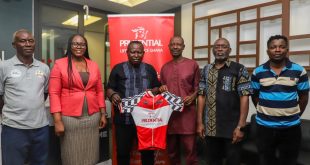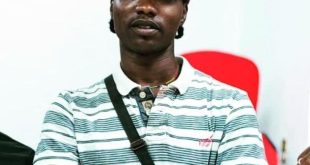By: Ruth Tang
In the bustling streets of Accra, Ghana’s vibrant capital city, a silent crisis unfolds every day, largely unnoticed by many. Here, amidst the hustle and bustle of urban life, a marginalized and vulnerable population struggles to survive – street children and homeless individuals with disabilities. Even though their experiences are often kept secret, the tales of these individuals reveal the difficult challenges endured by some of the most marginalized people in society, both Ghanaians and foreigners from places like Niger, Togo, Mali and Burkina Faso.
For many street children in Accra, life is a daily struggle for survival. Often orphaned or abandoned by their families, these children are forced to fend for themselves on the unforgiving streets of the city. With no access to education or healthcare, they resort to begging, scavenging, or engaging in menial labor to meet their basic needs. Without the protection of a stable home or supportive community, they are vulnerable to exploitation, abuse, and the dangers of street life.
Similarly, homeless individuals with disabilities face immense challenges as they navigate through the crowded streets of Accra. Whether physical, sensory, or intellectual, disabilities further compound their struggles, leaving them marginalized and excluded from mainstream society. Denied access to essential services such as healthcare, education, and employment, they find themselves trapped in a cycle of poverty and neglect.
The root causes of homelessness and disability in Accra are complex and intertwined, often stemming from systemic issues such as poverty, inequality, and lack of social support systems. Economic hardship, family breakdown, and inadequate healthcare contribute to the growing number of individuals living on the streets, while stigma and discrimination further perpetuate their marginalization.
Addressing the plight of street children and homeless individuals with disabilities in Accra requires a holistic and compassionate approach. Government initiatives must prioritize the rights and well-being of these vulnerable populations, ensuring access to essential services such as housing, healthcare, and education. Investing in social welfare programs, vocational training, and community-based support networks can empower individuals to rebuild their lives and reintegrate into society.
Furthermore, raising awareness and challenging stigma surrounding homelessness and disability is crucial in fostering empathy and understanding within the community. By amplifying the voices of those affected and promoting inclusive attitudes, we can create a more compassionate and supportive environment where everyone has the opportunity to thrive.
There is the need for all individuals to play a role in making a difference in the lives of street children and homeless individuals with disabilities in Accra. By supporting local charities, volunteering our time, and advocating for policy changes, a more inclusive and equitable society where everyone has the chance to fulfill their potential can be created.
In conclusion, the plight of street children and homeless individuals with disabilities in Accra serves as a stark reminder of the enduring inequalities and injustices that persist in Ghanaian society. It is imperative that individuals, organizations and policymakers come together as a community to address these challenges and work towards creating an enabling environment and a future where everyone, regardless of their circumstances, has the opportunity to thrive.
Source: Adoanews.com
 Adoa News Adoa News
Adoa News Adoa News




